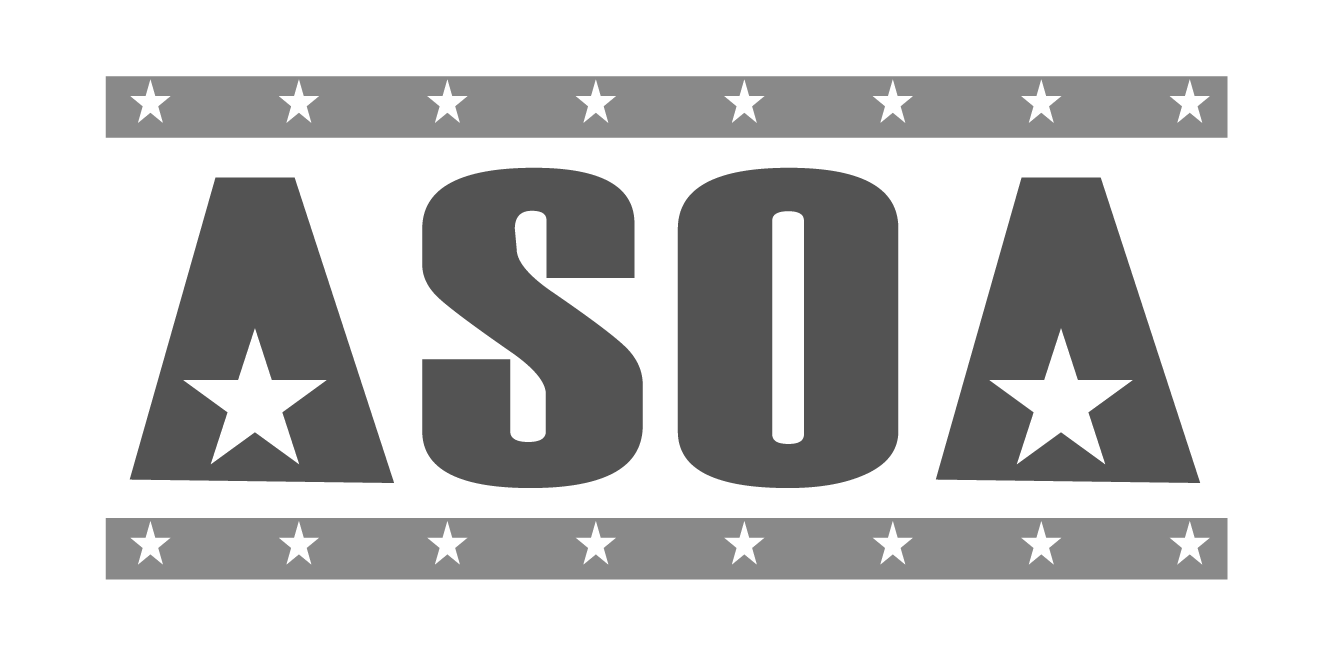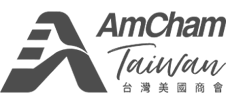Origin of the Organization
Connecting Taiwan-U.S. Industries and Promoting Exchange and Cooperation
The Taiwan-USA Industrial Cooperation Promotion Office (TUSA) was established in 2012 in response to the economic reconstruction opportunities following the global financial crisis and to leverage the complementary strengths of Taiwanese and American industries. The inauguration ceremony was jointly hosted by then-Minister of Economic Affairs Shih Yen-shiang, AIT Economic Section Chief Alan Tousignant, and ITRI President Dr. Jyuo-Min Shyu. The office was headed by the then-Director General of the Industrial Development Bureau, symbolizing a new phase of institutionalized and forward-looking industrial cooperation between Taiwan and the United States.
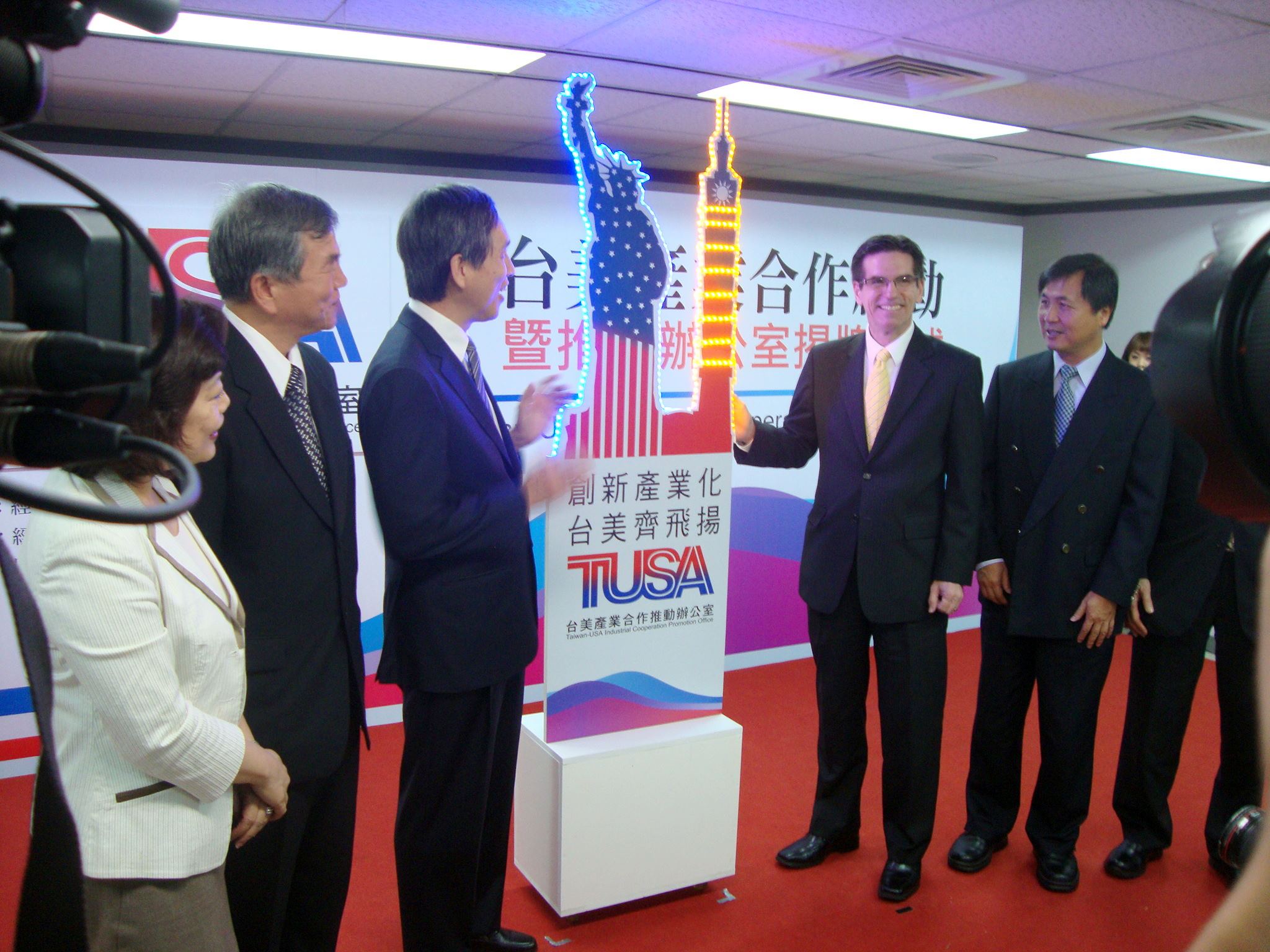
Innovation, Creativity, Entrepreneurship, Venture Capital (VC)
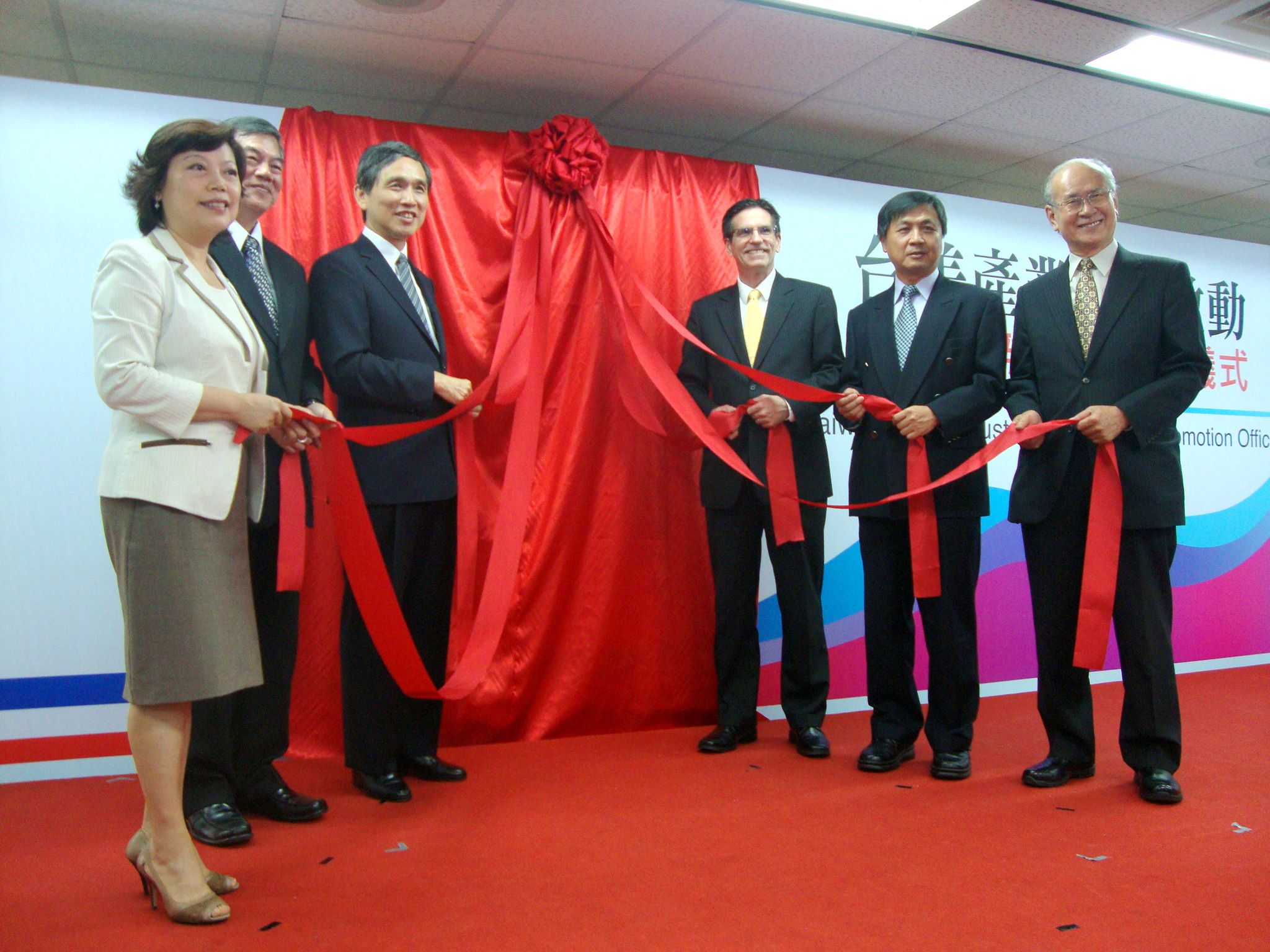
In its early stages, TUSA focused on collaboration in four key areas: information and communication technology (ICT), biotechnology, intellectual property, and green energy. Bilateral exchanges were promoted through four strategic pillars: innovation, creativity, entrepreneurship, and venture capital. These efforts aimed to connect Taiwan’s agile and comprehensive manufacturing supply chain with the United States’ global leadership in technological innovation and capital integration. In the face of challenges such as a global shortage of startup momentum, the offshoring of U.S. manufacturing and related unemployment, and the pressure on Taiwanese industries from thinning profit margins and industrial transformation, both sides recognized the need to strengthen horizontal integration across technology, manufacturing, regulations, and market access. Only through such comprehensive linkage could a new, internationally competitive industrial model be jointly developed.
A joint effort by industry, government, academia, and research institutions
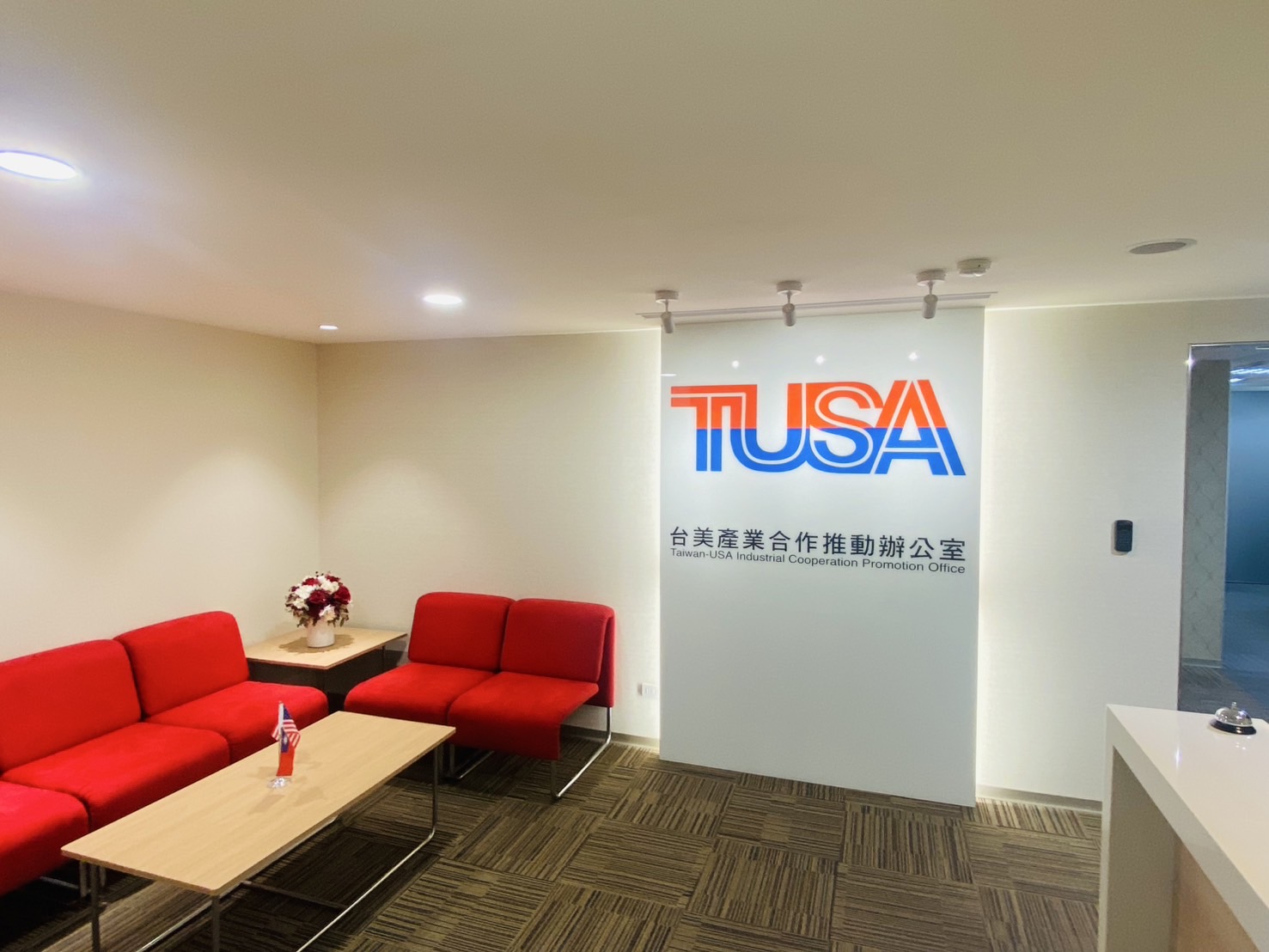
Since its establishment, the Office has continuously integrated existing industrial cooperation platforms between Taiwan and the United States. It has connected Taiwan’s legal entities, academic and research institutions with multiple U.S. national laboratories and hundreds of incubators, forming a long-term collaborative framework among industry, academia, and research sectors. These efforts aim to promote intellectual property sharing, technology commercialization, and international market expansion.
TUSA has emerged as a policy bridge.
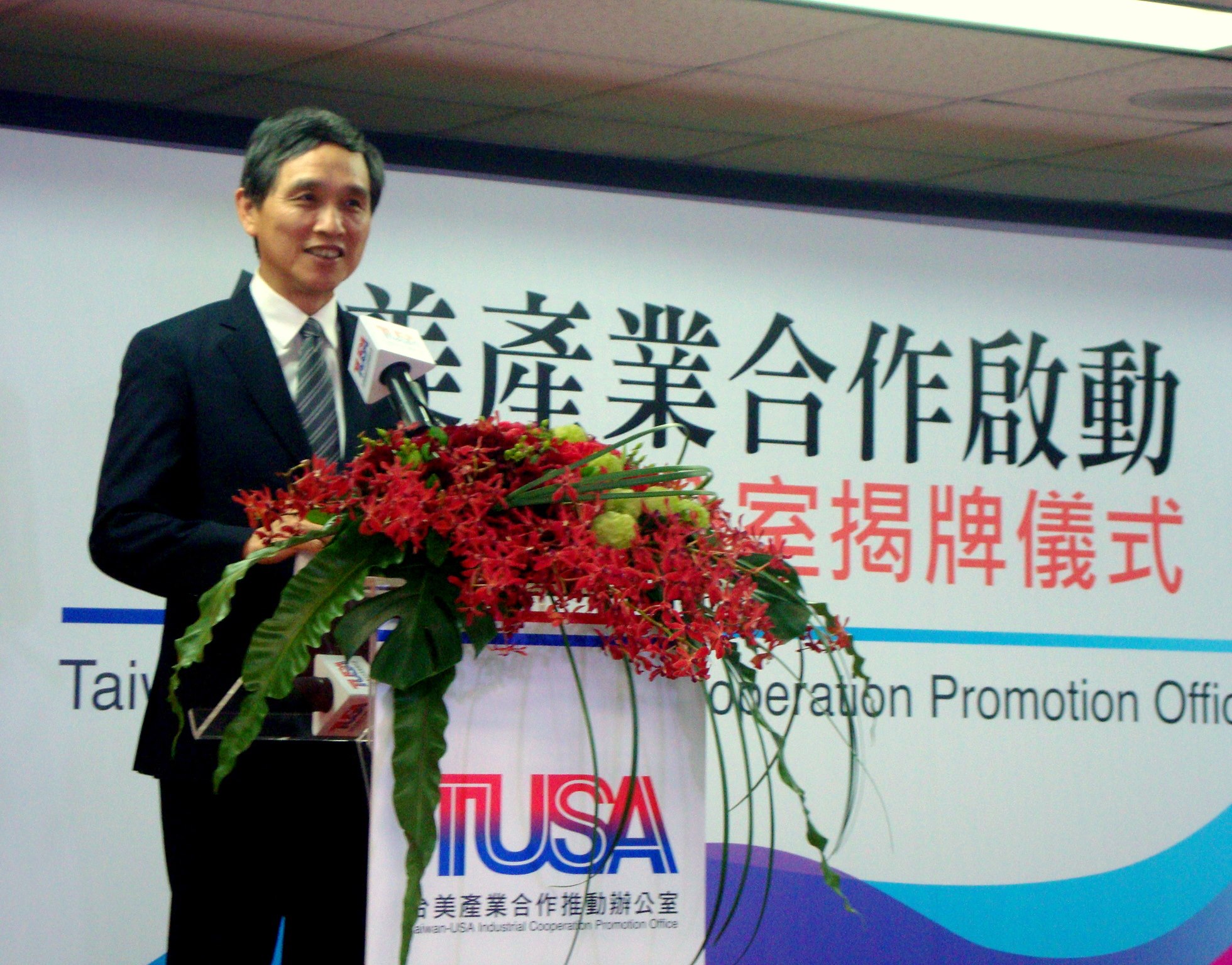
TUSA has become the "first stop for Taiwan-U.S. services", serving as a platform that connects policies, businesses, and innovation ecosystems. Its areas of focus include unmanned aerial vehicles (UAVs), semiconductors, artificial intelligence (AI), clean energy, and biomedical fields. With the Taiwan-U.S. 21st Century Trade Initiative, TUSA has further strengthened its role as an enabler of Taiwan-U.S. innovation cooperation, assisting the two nations’ industries in transitioning from technological collaboration to institutional coordination, standards integration, and the building of supply chain resilience.
Functions and Missions
Deepening Taiwan-U.S. international cooperation to enhance the resilience of Taiwan's industries.
Assisting U.S. companies in identifying supply chain partners in Taiwan.
Providing U.S. companies with fast access to competitive Taiwanese manufacturers, technology suppliers, and R&D partners when establishing operations, making investments, or launching new ventures in Taiwan. This helps promote local supply chain integration and enhance resilience.
Promoting Taiwan-U.S. industrial and technological cooperation.
Facilitating bilateral technological exchange and joint research and development in strategic fields such as unmanned aerial vehicles (UAVs), smart machinery, green/clean technologies, semiconductors, AI, ICT, and biotechnology/medical fields. This connects academic and research institutions, legal entities, and businesses to accelerate the commercialization of innovative and industrial applications.
Promote the exchange of industrial resources between Taiwan and the United States.
Serve as a platform for policy communication, resource matchmaking, and cooperation promotion by regularly organizing forums, business meetings, and technology showcase events to help enterprises from both sides grasp market trends, expand collaboration opportunities, and deepen industrial trust and long-term partnerships.

